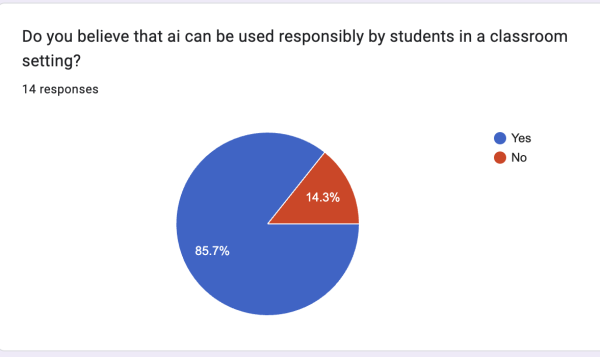Montana Senate Advances Bill to Alter Sex Ed Policy
On Feb. 23, the Montana Senate advanced a bill to the House which would allow parents to opt their children out of sex education, require schools to inform parents what will be taught, and ban abortion services providers from offering materials or instruction to health classes. The bill, which was introduced by Republican state senator Cary Smith, advanced on a party line vote, with all Republicans voting in favor and all Democrats voting against.
The bill originally changed sex ed to an opt-in policy, requiring parents to provide written consent before their kids could participate. However, that proposal received heavy criticism from many groups, including the Montana School Board Association, and the bill was amended to be opt-out.
Missoula County Public Schools policy already allows parents to review the sex ed curriculum and request their children be excused. However, this is pretty uncommon. Hellgate Health teacher Heather Cheney said she has only had one parent opt-out every five years or so. In fact, Cheney says that the sex-ed unit is “usually the favorite” in her classes because students find it the most interesting.
However, if passed, the bill will place limitations on who can come to speak. In the past, representatives from Blue Mountain Clinic and Planned Parenthood have offered information. Although both groups are abortion providers, Cheney said they focus on pregnancy and don’t promote their abortion services. “It’s mentioned because it’s factual but it’s not encouraged,” said Cheney.
Opponents of the new bill have expressed concern about the effects a more restrictive sex ed curriculum will have on rates of teen pregnancy, sexually transmitted diseases, and sexual abuse – issues the class seeks to prevent through education. Democratic state senators have also voiced worries that without sex education, teens will just seek out information from other, less trustable sources, or get no information at all.
However, the Republicans advancing the bill, as well as the religious lobbyists helping to push it through, feel that parents should have more control over the information their children receive on a subject with a “deeply moral component.” Many also worry that the sex ed curriculum has become too progressive. “When I was going to school, sex education was mostly about physiology, biology and anatomy. Sex education is no longer handled that way in our public schools,” said Sen. Smith. “A lot more attention is given to things like feelings, attitudes, relationships.”
There is truth to this. In the past decade or so, curriculums have shifted away from strict biology and abstinence-based curriculum to focus more on relationships. This is especially true at the high school level.
Cheney said the Health teachers at Hellgate assume students come from middle school with the basics covered. “You know some birth control, you know to be scared about STDs, you know how to define consent… What we try to emphasize at this level is what happens from here and how you navigate the relationships,” said Cheney.
She pointed out some learning targets on the board, which include things like “positive experiences and nurturing relationships,” “confidence and security in identity and sexuality,” and “autonomy over sexuality and body.”![]()
Research suggests that there are benefits to a more relationship and consent-based approach. A 2018 study from Columbia University found that students who had learned refusal skills during sex ed were 50% less likely to experience sexual assault during college than those who hadn’t recieved training for those skills. And several studies, such as one from the University of Washington in 2008, have found that students who receive comprehensive sex ed are significantly less likely to become pregnant than those whose education is abstinence-based. However, there is not a substantial amount of research on this topic yet, and many conservative parents worry that sex education encourages sexual activity.
If the bill is passed, Montana will join 36 other states with laws allowing parents to opt-out of sex ed. Policies vary greatly from state to state, and across local districts, so the information a student receives is highly dependent on where they live. In some states, topics designated as key by the Centers of Disease Control and Prevention, such as contraception and STDs, are mandated. In others, they are not discussed at all.
The part of the bill which bans abortion service providers from offering information is an even more controversial issue, one that divides Democrats and Republicans as they seek to reverse each other’s policies. This sex ed bill is one of many that the Montana legislature has introduced this session in an effort to restrict access to abortion while the state has a governor sympathetic to their cause.
Some of the other bills introduced include measures to ban abortions after 20 weeks, prohibit state health insurance plans from covering abortions, require health care workers to offer to show an ultrasound to those considering abortion, and change the constitutional definition of the word “person” to any fetus, “beginning at the stage of fertilization.”
In 2018, 1,674 abortions were provided in Montana, which is about 8.7 abortions per 1000 women of reproductive age. The total number of abortions is surely higher though, as that number doesn’t include residents that traveled to other states or abortions that were unreported.
Abortion is such a politicized topic that even in states with comprehensive sex ed where abortion is legal, it is somewhat taboo. Many teachers don’t go any further than mentioning it. “I just talk about the skills involved in preventing pregnancy and the skills involved in decision making,” said Cheney. She also emphasizes the sexual health resources available in town so that students can seek out more information and resources on their own.
The House held their first hearing on the bill Mar. 10 and will likely vote on it in the near future. With the Republican majority it will likely pass and be sent to Governor Gianforte for approval.

Hello! I'm a Senior at Hellgate and this is my second year writing for the Lance. In addition to writing, I enjoy mountain biking, playing cello, and competing...




